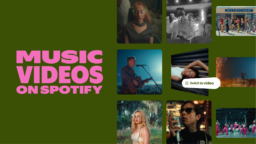“In many ways, I’m probably the least powerful person in Spotify,” Daniel Ek says.
That certainly sounds strange coming from Spotify’s co-founder and CEO, who also happens to be the streaming service’s single largest shareholder (with a 16.5% share of the company as of the end of 2022).
“I often hear the phrase ‘you should go directly to the CEO’… where a lot of people think that you’re magically going to be able to enact some kind of decision,” Ek told an audience at a Q&A session in Oslo, Norway, on January 9.
“And it is actually true that there are certain types of organization where the CEO would probably always make the decision,” he continued.
But with Spotify, “there is the Scandinavian leadership model, where you delegate decision-making. You allow your leaders to make [the decisions]. So, in many ways, I’m probably the least powerful person in Spotify and I probably make the least amount of decisions in Spotify”.
That is certainly an interesting revelation from the head of a company that has made some pretty momentous decisions in recent months.
Last summer, for example, Spotify announced its first-ever price hikes in major markets. After sitting at $9.99 for more than a decade, the price in the US for an individual Premium subscription went up to $10.99.
Dozens of other markets also saw their first-ever hikes to Premium subscriptions.
Several months later, Spotify confirmed that it’s changing its royalty payment model, away from the pro-rata payment system, where the rightsholders of every track get paid from a collected pool of royalty money according to their number of streams, to one where only tracks that get more than 1,000 plays in the past 12 months are eligible to receive payments.
Both decisions were no doubt at least partly the result of pressure coming from music recording companies, which over the course of 2023 had begun to raise the alarm at the lack of response from streaming services to inflationary pressures in the economy.
And the change in SPOT’s royalty payment model, coming into effect this quarter (Q1 2024), has followed a full-court press by Universal Music Group to shift streaming services towards an “artist-centric” payment model, where more popular artists get a larger share of the pie, while low-quality tracks get disincentivized.
One certainly has to wonder, in light of Ek’s recent comments, where those decisions were made.
“There are so many people that make a great company work, and assistants in particular are hugely important and powerful, but they rarely get that recognition.”
Daniel Ek, Spotify
Regardless of his direct involvement, or lack thereof, Ek was making a point with his “least powerful person in Spotify” comment, about the importance of the many people outside the C-suite who do “most of the work” in any given organization. And he singled out one group of people as being the unnoticed power brokers of business: personal assistants.
“Almost all powerful people have assistants of some kind. And they are actually the ones who decide who this person is meeting, or not meeting, and can really help shape whatever happens in that person’s name,” Ek said.
He added that “it’s a powerful trip” to realize that “there are so many people that make a great company work, and assistants in particular are hugely important and powerful, but they rarely get that recognition.”
To illustrate his point, Ek offered an anecdote from the 2000s, when he was a young serial startup founder looking for his big break. He found himself with a standing meeting every Friday with “the CEO of one of the big record companies.” This CEO kept saying no to his proposal, and during the third or fourth meeting with Ek, he asked: “How the f— are you meeting with me every Friday? How do you get on my calendar?”
As it happened, Ek says, he knew the favorite chocolate bar brand of this CEO’s assistant, and leveraged a gift of said chocolate bar to get himself on the calendar. Walking out of the first meeting, he told the assistant: “He wants to meet next week too, [and] every Friday.”
Of that move, Ek said: “Sometimes you have to be a little bit cheeky to make things happen.”
And the cheekiness paid off – eventually Ek made a deal with this unnamed CEO.
The Spotify boss was speaking during a live filming in Norway of an episode of In Good Company, the podcast hosted by Norges Bank Investment Management (NBIM) CEO Nicolai Tangen.
NBIM is the firm that manages Norway’s gigantic Government Pension Fund Global, a.k.a. the “oil fund” where Norway’s surplus wealth from oil exports is funneled. NBIM says that as of the end of 2022, it held 0.29% of Spotify shares, valued at USD $124 million.
Here are a few other things we learned from Ek’s appearance on the In Good Company podcast…
AI will make better playlists for you than you can
Asked by NBIM’s Tangen where AI will take Spotify, Ek focused in on the user experience.
“The number one problem [music streaming[ consumers have is still ‘How do I find what I want to listen to?’… And equally, from the creator’s side, is ‘Help me find more audience.’ It actually happens to be sort of two sides of the same coin,” Ek said.
“The truth is, as good as we are at recommendations, if you really put your mind to it, you could create a better playlist yourself. I think five years to 10 years from now, that will not be true.”
“We’re going to become that trusted friend where we’re going to introduce you to things that you probably thought ‘No way in hell am I going to be interested in this,’ and you’re going to be totally open to it.”
Daniel Ek, Spotify
He continued: “I think we will do a better job – even if you spent a whole working day trying to figure out what you wanted to listen to – we will be able to create a playlist that is so much better than any of that.
“So that means… right now Spotify is your friend that knows music really well, and podcasts and all that stuff, and it knows you OK, but it doesn’t understand you [in terms of] what you might want right at precisely this moment, or novel things that you haven’t shown appreciation for but might… if we introduced it in the right way.”
Thanks to AI, “we’re going to become that trusted friend where we’re going to introduce you to things that you probably thought ‘No way in hell am I going to be interested in this,’ and you’re going to be totally open to it”.
Abba indirectly helped to create Spotify, Ek says
Swedish pop supergroup ABBA ruled the 1970s. In 1974, the band gave Sweden its first-ever win in the Eurovision Song Contest, and from there they went on to become one of the biggest-selling musical acts of all time.
Their influence on music continues in our current era, from the success of the Mamma Mia! musical based on ABBA’s music, to the fact that founding member Bjorn Ulvaeus is President of CISAC, the umbrella group that represents more than 230 authors’ societies in over 120 countries, as well as co-founder of the Music Rights Awareness Foundation.
But Ek suggested that ABBA also played some role in the rise of Spotify – by turning Sweden into an exporter of music with a strong music creation tradition.
Sweden “had a healthy music ecosystem to begin with, [which] was amazing,” Ek said. “And that stems all the way back from ABBA, all the great producers, everyone else, came from there. And that created more songwriting talent, and so on, and perhaps that’s what got me into music too,” he said.
Ek noted other major streaming platforms also have a connection to Scandinavia – notably Tidal, which was launched in 2014 by Swedish firm Aspiro.
Despite being a billionaire, Ek still has a ‘chip on his shoulder’
Asked if – like many talented people – Ek is a “tortured soul,” the Spotify CEO responded: “You have a chip on your shoulder, and I certainly have that too, still. I still feel inadequate pretty much every day. I still feel like s–t when I’ve screwed up something, even how I formulated something two minutes ago, it’s like ‘I should have done a better job.’
“And that is constantly how I think about things. I constantly see problems as much as I see opportunities in front of us, and I feel impatient [to fix them].”
But, Ek added: “I try to counter that by surrounding myself with people where we can joke. I love coming to work every day, because I get to learn from these people.
“I get to send them weird memes which half the time they don’t understand, and they send me weird question marks back, but it’s the way we roll with things, and that brings me happiness.
“It brings me happiness to see the impact we’re having. It brings me happiness to see when we have people inside the company, when we see them developing.”Music Business Worldwide





